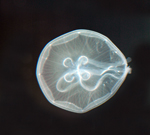What is Heartworm Disease disease is a major and potentially fatal condition due to parasitic worms living in the arteries of the lungs and occasionally in the right side of the guts of dogs, cats and other species of mammals, including wolves, foxes, ferrets, sea lions and [ in rare instances ] humans. Heartworms are classified as nematodes [ roundworms ] and are filarids, one of plenty of species of roundworms. Dogs and pussies of any age or reproduce are at the mercy of infection.
What Are the appearances of Heart worm Disease? For both dogs and moggies, clinical evidence of heartworm disease may not be recognized in the early stages, as the amount of heartworms in an animal tends to amass continuously over a period of months and occasionally years and after repeated mosquito bites.
Lately infected dogs may exhibit no signs of the disease, while heavily infected dogs may at last show clinical signs, including a mild, determined cough, reluctance to move or exercise, fatigue after only moderate exercise, reduced appetite and weight reduction. Felines may exhibit clinical signs that are really non-specific, mimicking plenty of other feline diseases.
Chronic clinical signs include puking, gagging, difficulty or rapid breathing, lethargy and weight reduction.
Signs associated with the 1st stage of heartworm disease, when the heartworms enter a blood vessel and are carried to the pulmonary arteries, are commonly mistaken for feline asthma or allergic bronchitis, when actually they are basically because of a syndrome newly defined as Heart worm Associated Respiratory Disease [ HARD ].
How Do You Detect Heart worm Disease? Heart worm infection in seemingly healthy animals is generally detected with blood tests for a heartworm substance called an "antigen" or microfilariae, though neither test is consistently positive until about seven months after infection has took place. Heart worm infection could also occasionally be detected thru ultrasound and/or x-ray images of the heart and lungs, though these tests are usually used in animals already known to be infected.
prevention Because heart worm disease is preventable, the AHS recommends that pet owners take steps now to talk to their veterinarian about the way to best protect their pets from this dangerous disease. Heart worm prevention is safe, easy and inexpensive.
While treatment for heart worm disease in dogs is possible, it is a complicated and expensive process, taking weeks for infected animals to recover. There's no productive treatment for heart worm disease in cats, so it is critical that disease prevention measures be taken for cats. There are a number of options for preventing heartworm infection in both dogs and cats, including daily and monthly tablets and chewables, monthly topicals and a half year injectable product available only for dogs. All of these methods are extremely effective, and when administered properly on a timely schedule, heartworm infection can be fully forestalled. These medications interrupt heartworm development before adult worms reach the lungs and cause disease.
It is your responsibility to faithfully maintain the prevention program you have selected in talks with your vet. Treatment Sometimes , all but the most complicated cases of heart worm disease can be successfully treated in dogs. Now , there are no products in the U. S.
Authorized for the treatment of heartworm infection in cats. Moggies have proven to be more resistant hosts to heartworm than dogs, and regularly seem to be ready to rid themselves of infection spontaneously. Unfortunately, many cats tend to cats have a tendency to the dead worms as they are being cleared by the body, and this may lead to a shock reaction, a potentially fatal situation. Veterinarians will often attempt to treat an infected moggy with supportive care measures to reduce this reaction ; however it is always best to stop the disease. Adult heartworms in dogs are killed by administration of a drug called an adulticide that is injected into the muscle thru a series of treatments. Treatment may be administered on an outpatient basis, but hospitalization is usually recommended. When the dog is sent home, exercise should be restricted to leash walking for the duration of the recovery period, which can last from 1 to 2 months. This decreases the risk of partial or complete blockage of blood flow thru the lungs by dead worms. Re-infection during treatment is prevented by administration of a heartworm preventive. These preventives might also eliminate microfilariae if they are present. Dogs in heart failure and those with caval syndrome need special attention.
For more information on !a href="http://www.heart-worm.org">Heart worms please visit us online at http://www.heart-worm.org

 The Difference Between A Smooth Coated Fox Terrier And A Rat Terrier
The Difference Between A Smooth Coated Fox Terrier And A Rat Terrier
 What Is Legg Calve Perthes Disease In Dogs ?
What Is Legg Calve Perthes Disease In Dogs ?
 Keeping Children Safe Around Dogs
Keeping Children Safe Around Dogs
 Things to Consider Before Buying the Ultimate Chicken Runs
Things to Consider Before Buying the Ultimate Chicken Runs
 Discover the many benefits and advantages of following marine aquarium blog
Discover the many benefits and advantages of following marine aquarium blog
 Controlling A Dogs Reactivity To Other Dogs
Controlling A Dogs Reactivity To Other Dogs
 Understanding Euthanasia
Understanding Eut
Understanding Euthanasia
Understanding Eut
 Important Things You Should Know About Chinchillas
Important Things
Important Things You Should Know About Chinchillas
Important Things
 What Is A Basenji?
What Is A Basenji
What Is A Basenji?
What Is A Basenji
 Five Universal Personality Traits Of The Hungarian Vizsla
Five Universal Pe
Five Universal Personality Traits Of The Hungarian Vizsla
Five Universal Pe
 Jellyfish as Pets
A Jellyfish is a soft-shelled marine creature with a body l
Jellyfish as Pets
A Jellyfish is a soft-shelled marine creature with a body l